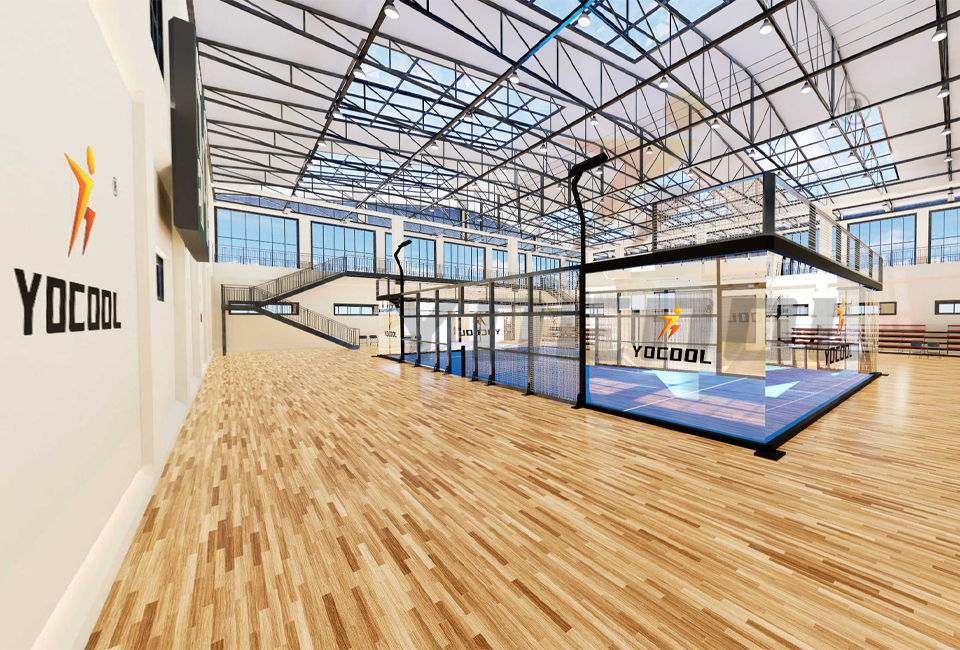

The Economics of Tennis Court Prices A Guide for Suppliers and Buyers
Tennis is more than just a sport; it’s a lifestyle, a passion, and for many, an investment. As the popularity of tennis continues to soar, the demand for quality tennis courts rises alongside it. Suppliers in this niche market are pivotal in determining the pricing and quality of tennis court installations. This article delves into the factors influencing tennis court prices and what buyers should consider when seeking suppliers.
Understanding the Types of Tennis Courts
Before diving into pricing, it’s important to understand the various types of tennis courts. There are several surfaces to choose from, each with its own characteristics and cost implications
1. Clay Courts Known for their slower pace, clay courts are popular in Europe and South America. These courts typically require more maintenance, which can impact pricing. The average cost of installing a clay court can range from $60,000 to $100,000, depending on the quality of materials and labor.
2. Hard Courts These are the most common in the United States, made from asphalt or concrete coated with an acrylic surface. Hard courts generally range from $30,000 to $75,000. They are durable and relatively low-maintenance, making them a preferred choice for many public facilities.
3. Grass Courts While they provide a unique playing experience, grass courts are often the most expensive due to their intensive maintenance needs. Installation can run between $80,000 and $150,000, not to mention ongoing costs for mowing, watering, and disease control.
4. Synthetic Courts These courts are made from artificial turf and can mimic the feel of grass or clay. They are versatile and require less maintenance than traditional surfaces, with prices ranging from $50,000 to $100,000.
Each surface has its pros and cons, and the choice will significantly affect the overall price of installation and maintenance.
Factors Influencing Court Prices
Several key factors influence the cost of tennis courts, and thus the pricing strategies of suppliers
1. Location The geographical location affects material transport costs and labor availability. Urban areas may have higher labor rates, influencing the overall cost.

2. Material Quality Premium materials, whether for the surface, netting, or fencing, will increase the price. Suppliers must balance between quality and cost to attract customers.
3. Design Complexity The complexity of the design, including features like lighting, fencing, and seating, can significantly affect prices. Custom designs inherently come at a premium.
4. Maintenance Requirements Courts that require little maintenance may have a higher upfront cost but save money over time. Suppliers should clarify long-term costs with potential buyers.
5. Labor Costs The availability and skill level of the workforce also play a crucial role in determining prices. Highly skilled labor can ensure better quality installations, justifying higher costs.
Tips for Buyers When Choosing Suppliers
When buyers are searching for tennis court suppliers, they should consider several factors to ensure they make informed decisions
1. Reputation Research the supplier's reputation by reading reviews and asking for references. A supplier with a strong track record will be more likely to offer quality installations.
2. Portfolio of Work Request to see past projects to gauge the quality and style of their work. This will help buyers understand what to expect.
3. Warranty and Support A reputable supplier should offer warranties and support for their work. Understanding the terms will provide peace of mind.
4. Cost Transparency Suppliers should provide clear and detailed quotes. Hidden fees can lead to disputes down the line, so transparency is critical.
In conclusion, the market for tennis courts is diverse and complex, shaped by various factors that influence pricing. For suppliers, understanding these facets is essential in setting competitive prices while ensuring quality. For buyers, informed decision-making will lead to successful investments in their tennis infrastructure. Whether for personal use or public facilities, the right court can enhance the love for the game for years to come.
High-Performance Industrial Flooring Solutions China Paddle Tennis Court for Sale
High-Performance Industrial Flooring Solutions Durable & Cost-Effective
Homogeneous Transparent Floor – Durable & Stylish Rubber Floor Solutions
Premium Homogeneous Transparent Floor for Durable & Stylish Spaces Rubber Floor Solutions
Premium Sports Floor Solutions Durable PVC Sports Floor & Rubber Floor for Gyms
Durable Rubber Composite Floor Premium Rubber Floor & Mats Solutions